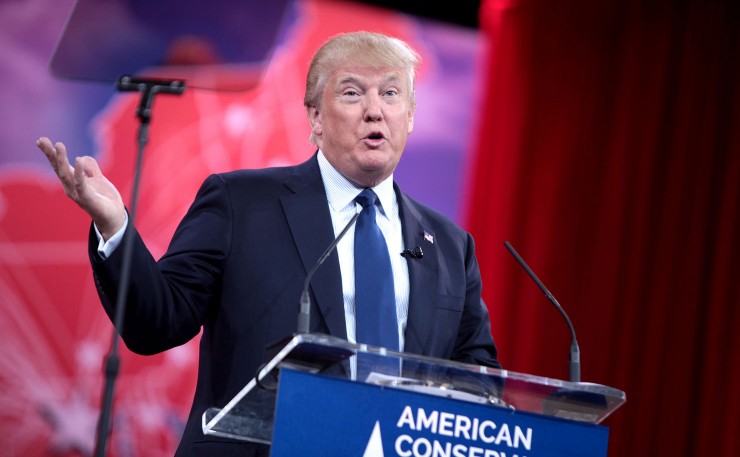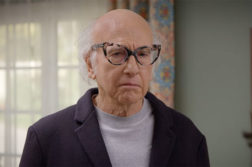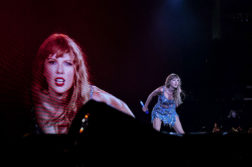In a post-truth world where ‘alternative facts’ are now peddled by leaders and their advisers, the need for a transparent media is greater than ever, writes Johan Lidberg.
Trump in the US, Brexit in the UK, Le Pen in France, Hanson in Australia, racist and xenophobic party gains in Sweden, Norway, Denmark, Finland, Holland, Austria, Poland and Hungary – the common denominators are nationalism and xenophobia. Has the mix of strong nationalism and fear of the other ever brought the world anything but conflict? The answer is no and this is the fire supporters of these leaders and parties are playing with.
Many jaws are still on the floor after White House press secretary, Sean Spicer, used his first briefing in the press room to contradict photographic (and other) evidence of the attendance numbers at the Trump inauguration and the Women’s March in Washington.
Spicer seriously and angrily claimed that the media has misreported and lied about the number of people attending the swearing in of Trump compared to Obama in 2009, and to the Women’s March in Washington the day after the inauguration.
Spicer claimed that “this was the largest audience ever to witness an inauguration, period”. The evidence clearly contradicts this.
Much blame has been allocated to media for doing a poor job in reporting the rise of Donald Trump. Some of the critique, such as underestimating the anger of being left behind in the globalization race, is justified. And yes, you could argue that the media has not done enough to maintain and rebuild lost trust between themselves and the audience.
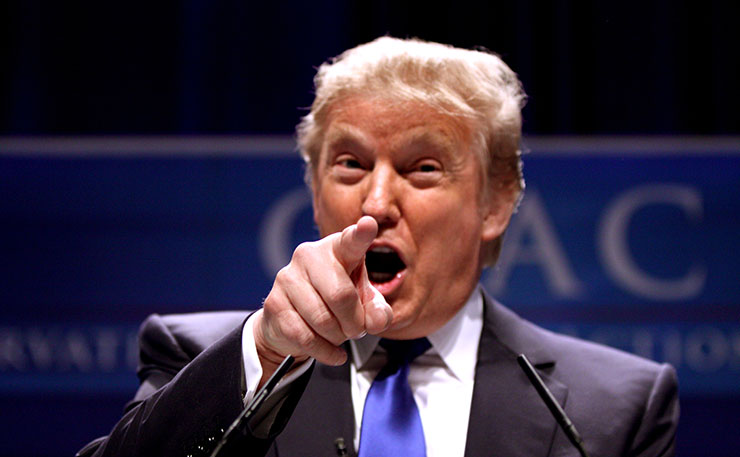
Trust is, after all, crucial to the journalistic business model and here media owners and editors have been asleep at the wheel while the trust has dwindled away. This is probably one of the main factors why some segments of the public (globally) are increasingly prepared to accept half-truths and outright lies from some politicians.
But, in the end no-one is forcing the public to believe lies peddled by politicians and other power brokers in society. If you accept blatant lies as a tool to gain power, you change the playing field and there is an increasing risk that we end up with the wrong people in power. There are strong indications this is the case of President Trump.
I will not again here list his by now his long list of lies and unethical behaviour, suffice to say that his statement and actions were fact checked throughout the long presidential campaign and often proved to be repeated lies.
Media and journalists are an easy target for the Trump conspiracy theory driven White House. At the base of this tactic sits Trump’s strong connection with angry, disenfranchised, grassroots supporters. It was them he connected with during the campaign and it was them he addressed in his dark and angry inauguration speech.
This tactic is being employed by Trump-like politicians across the globe. Large parts of the grassroots feel (rightly) left behind by globalization and are prone to accepting outlandish conspiracy theories on who is driving globalization. Trump taps into this in a very cunning way and claims, without presenting evidence, that old/established media and journalists are part of this elite driven conspiracy that aims to bleed the grass roots dry.
On closer inspection, and when you hear them justify why they support Trump, they sound more like sect members than members of a political party – it doesn’t matter what Trump does or says, they’ll believe him anyway, regardless of the facts.
The respect for verified facts has its roots in the rise of scientific inquiry during the Enlightenment in the 1700s. This period was also known as the Age of Reason. It now seems large parts of electorates in countries across the globe are breaking with facts and we’ve entered the Age of Unreason.
Case in point: after the dictatorial press briefing by White House press secretary Spicer (he refused to take any questions), Trump’s senior political adviser, and former campaign manager, Kellyanne Conway claimed that Spicer was presenting ‘alternative facts’ in an interview with NBC’s Meet The Press.
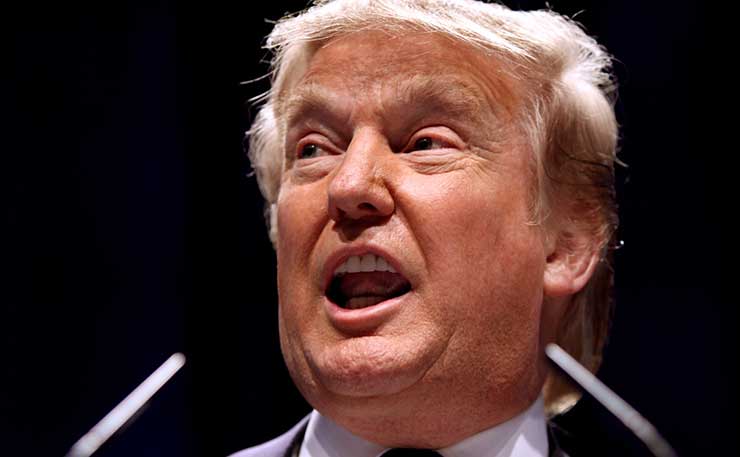
When we’re dealing with photographic evidence of the inauguration crowd and the Women’s March and we’re sure the images have not been manipulated, what on earth are ‘alternative facts’? There can only be one answer – not facts, ie. lies.
Pre the Trump era it would have been a serious scandal for a senior political advisor to make such a comment. Now she is backed by the conspiracy-theory-brigade who populate ‘alternative media’.
So what should the journalists do? Keep striving to report the facts as accurately as possible and be as transparent and accountable in their reporting practices to rebuild trust with the public. Stephen Ward’s thoughts on a Global Journalism Ethics that includes rather than excludes the public is a good starting point.
Another vital task for journalists is to document the zeitgeist. To be part of creating the first draft of history we know as news as accurately as possible. That’s how the public is held to account for their actions and voting.
The US White House press corps is in for one of its biggest challenges ever. Never before have we seen a US president with such strong autocratic and anti-intellectual traits as Donald Trump.
The stakes for White House correspondents have risen considerably since the inauguration of Trump. The information war has now truly begun and the side who wins the trust of the majority of American voters will win.
At this point in time it’s very hard to predict who that will be. Let’s hope the misinformation war doesn’t turn into a global conflict. Playing with fire is dangerous.
Donate To New Matilda
New Matilda is a small, independent media outlet. We survive through reader contributions, and never losing a lawsuit. If you got something from this article, giving something back helps us to continue speaking truth to power. Every little bit counts.

